
Sidney Poitier was a Bahamian-American actor, film director, activist, and diplomat. In 1964, he was the first Black actor and first Bahamian to win the Academy Award for Best Actor. He received two competitive Golden Globe Awards, a BAFTA Award, and a Grammy Award as well as nominations for two Emmy Awards and a Tony Award. In 1999, he was ranked among the "American Film Institute's 100 Stars". Poitier was one of the last surviving stars from the Golden Age of Hollywood cinema.

Radio drama is a dramatized, purely acoustic performance. With no visual component, radio drama depends on dialogue, music and sound effects to help the listener imagine the characters and story: "It is auditory in the physical dimension but equally powerful as a visual force in the psychological dimension." Radio drama includes plays specifically written for radio, docudrama, dramatized works of fiction, as well as plays originally written for the theatre, including musical theatre, and opera.
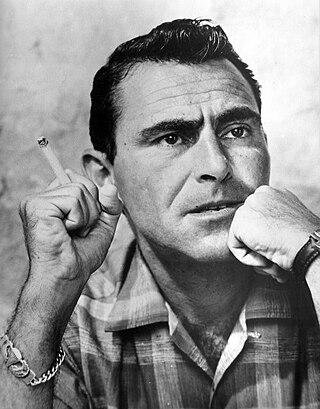
Rodman Edward Serling was an American screenwriter and television producer best known for his live television dramas of the 1950s and his anthology television series The Twilight Zone. Serling was active in politics, both on and off the screen, and helped form television industry standards. He was known as the "angry young man" of Hollywood, clashing with television executives and sponsors over a wide range of issues, including censorship, racism, and war.
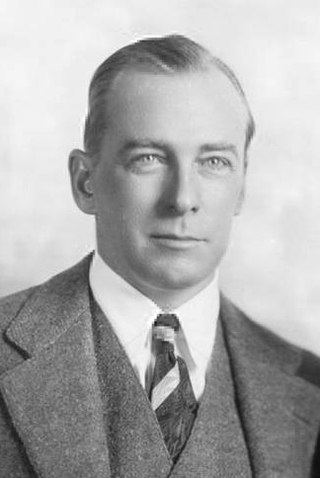
George Francis Abbott was an American theatre producer, director, playwright, screenwriter, film director and producer whose career spanned eight decades. He received numerous honors including six Tony Awards, the Pulitzer Prize, the Kennedy Center Honors in 1982. the National Medal of Arts in 1990. and was inducted into the American Theatre Hall of Fame.
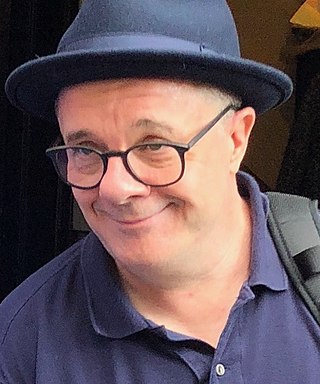
Nathan Lane is an American actor. Since 1975, he has been seen on stage and screen in both comedic and dramatic roles. Lane has received numerous awards, including three Tony Awards, seven Drama Desk Awards, a Laurence Olivier Award, three Emmy Awards, and a Screen Actors Guild Award. Lane received a star on the Hollywood Walk of Fame in 2006 and was inducted into the American Theater Hall of Fame in 2008. In 2010, The New York Times hailed Lane as "the greatest stage entertainer of the decade".

Paul Reiser is an American actor, comedian, and writer. He played the roles of Michael Taylor in the 1980s sitcom My Two Dads, Paul Buchman in the NBC sitcom Mad About You, Modell in the 1982 film Diner, Carter Burke in the 1986 film Aliens, and Detective Jeffrey Friedman in Beverly Hills Cop (1984), Beverly Hills Cop II (1987), and Beverly Hills Cop: Axel F (2024). He has gained recognition for his roles as Jim Neiman in the 2014 film Whiplash and Dr. Sam Owens in the Netflix series Stranger Things.

Jerome Bernard Orbach was an American actor and singer, described at the time of his death as "one of the last bona fide leading men of the Broadway musical and global celebrity on television" and a "versatile stage and film actor". Over his career he received a Tony Award and Screen Actors Guild Award as well as nominations for three Emmy Awards and a Grammy Award.

The Kentucky Fried Movie is a 1977 American independent anthology sketch black comedy film, produced by Kim Jorgensen, Larry Kostroff, and Robert K. Weiss, and directed by John Landis. Among the numerous star cameos are George Lazenby, Bill Bixby, Henry Gibson, Barry Dennen, Donald Sutherland, Tony Dow, Stephen Bishop, and the voice of Shadoe Stevens. According to writer David Zucker on the DVD commentary track, David Letterman auditioned for the role of the newscaster, but was not selected. The film also features many former members of The Groundlings and The Second City. The "feature presentation" portion of the film stars Evan C. Kim and hapkido grand master Bong Soo Han. The Kentucky Fried Movie marked the first film appearances of a number of actors who later became famous, and launched the careers of the Zucker brothers, Abrahams and Landis.

Sheldon Leonard Berman was an American comedian, actor, writer, teacher, and lecturer.
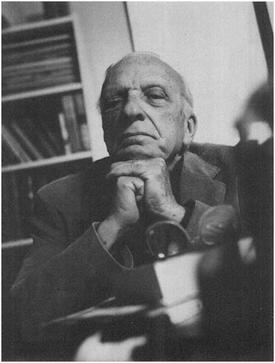
Philip Yordan was an American screenwriter, film producer, novelist and playwright. He was a three-time Academy Award nominee, winning Best Story for Broken Lance (1951).
Raymond Edward Johnson was an American radio and stage actor best remembered for his work on Inner Sanctum Mysteries.
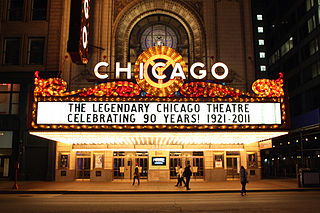
Theater in Chicago describes not only theater performed in Chicago, Illinois, but also to the movement in Chicago that saw a number of small, meagerly funded companies grow to institutions of national and international significance. Chicago had long been a popular destination for touring productions, as well as original productions that transfer to Broadway and other cities. According to Variety editor Gordon Cox, beside New York City, Chicago has one of the most lively theater scenes in the United States. As many as 100 shows could be seen any given night from 200 companies as of 2018, some with national reputations and many in creative "storefront" theaters, demonstrating a vibrant theater scene "from the ground up". According to American Theatre magazine, Chicago's theater is "justly legendary".
William Daniel Cunningham is an American radio and television talk show host, conservative commentator, attorney, and entrepreneur.

Nathan Hiken was an American radio and television writer, producer, and songwriter who rose to prominence in the 1950s.
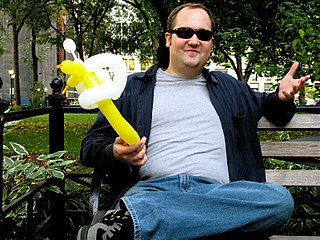
John Michael Lutz is an American actor, comedian, and screenwriter. He is best known for playing J. D. Lutz on the NBC sitcom 30 Rock, and for his work as a writer on the NBC series Saturday Night Live for seven seasons. In 2014, he joined the writing staff of the NBC late-night talk show Late Night with Seth Meyers.
Israel Castro Vélez, better known as Shorty Castro was a Puerto Rican comedian, actor, comedy writer, stage director, radio host, singer, dancer, composer and musician, with a career spanning over 60 years.

Buddy Lester was an American actor and comedian who portrayed dozens of character roles in films and television. Although known for his appearances in Jerry Lewis’ comedy films, he was also regularly seen on popular television shows in the 1960s and 1970s. As a comedian, he was a fixture on the international nightclub circuit for several decades and was the younger brother of comedian Jerry Lester.

Chopin Theatre is an independent performing arts venue located in Wicker Park, Chicago. Reopened in 1990 by Zygmunt Dyrkacz, a Polish immigrant, the theater has become a significant cultural hub known for its eclectic programming and commitment to avant-garde and experimental performances. Since 1990, Chopin Theatre has hosted over 2,100 presentations as well as its own productions, ranging from theater and dance to music and literary events. The venue is particularly renowned for showcasing international works, especially from Eastern Europe, and has played a crucial role in introducing Chicago audiences to innovative and challenging performances. The theater's influence extends beyond its productions, as it has been instrumental in fostering a vibrant arts community within Chicago, making it one of the city's best venues for theater.
Bob Weiskopf was an American screenwriter and producer for television. He has credits for I Love Lucy which he and his writing partner Bob Schiller joined in the fifth season. They also wrote for The Lucy-Desi Comedy Hour, The Lucy Show, Maude, All in the Family, Archie Bunker's Place, The Red Skelton Show, the short-lived Pete and Gladys, and Sanford.

Himan Brown, also known as Hi Brown, was an American producer of radio and television programs. Over seven decades, Brown produced and directed more than 30,000 radio shows, for all of the major radio networks and syndication. He worked with such actors as Helen Hayes, Boris Karloff, Peter Lorre, Gregory Peck, Frank Sinatra and Orson Welles.















